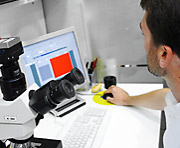Información legal:
Titular de la página web: Gris Reproducción SL
Propiedad Intelectual:
Todos los derechos de explotación están reservados. Queda prohibida la reproducción, retransmisión, copia, ce-sión o difusión total o parcial de su contenido sin autorización expresa y por escrito. Tampoco se autoriza:
- La PRESENTATION de una página del sitio web en una ventana que no pertenezca a Gris Reproducción SL por medio de "framing".
- La inserción de una imagen difundida en el sitio web en una página que no sea de Gris Reproducción SL mediante "in line linking".
- La extracción de elementos del sitio web causando perjuicio a Gris Reproducción SL, de conformidad con las disposiciones vigentes.
Garantías y Responsabilidades:
Gris Reproducción SL no asume la responsabilidad de las infracciones en que puedan incurrir los usuarios ni de los daños y perjuicios causados por la utilización de esta web, y se reserva el derecho de actualización y modificación de la información sin previo aviso.
Gris Reproducción SL no asume la responsabilidad del contenido, la veracidad y los errores en los enlaces a los que se puede acceder a través de la página web. La única finalidad de los enlaces consiste en proporcionar a los usuarios el acceso a una información que pueda ser de su interés.
Las anteriores condiciones se regirán por la normativa española.
08017 - Barcelona - Spain
Telephone: (+34) 93 280 65 35
Fax: (+34) 93 280 08 71
doctorgris@doctorgris.com


At present it is almost imperative that the centers of Assisted Reproduction have the possibility of conducting genetic studies on embryos before being transferred to the uterus: (preimplantacional Genetic Diagnosis).
Preimplantacional Genetic diagnosis
Introduction
There are many factors that influence the viability of an embryo, but one of the most important are the chromosomal abnormalities.
Less than half of all conceptions result in a live fetus.
In IVF, many embryos fail to "progress" before being transferred.
Of those that survive and are transferred only 5-30% end in a live fetus, depending on the woman's age. More than half of human embryos after IVF cycle have cells with chromosomal abnormalities.
These embryos with abnormalities in the number or structure of chromosomes can be morphologically normal.
The selection of embryos are based on preliminary chromosomal studies using the technique of FISH:
1 .- Reduces the rate of spontaneous abortions
2 .- Reduces the incidence of aneuploidy
3 .- Increases the rate of embryo implantation
The DGP also allows the study of congenital diseases where the parents are carriers, which are a result of the malfunction or deficit of one particular gene (monogenic diseases).
Methodology:
In a conventional IVF cycle, when the embryology laboratory has embryos at the stadium in cells 6-8 (corresponding to the day 3 post-fecundation), we remove one or two cells in each embryo.
These cells pass to the biopsy genetics lab where the study of possible aneuploidy (9 chromosomes), traslocations or other structural abnormalities of chromosomes are conducted.
Whether to perform a study of translocations (investigation of chromosomal abnormalities) or a particular gene, will be technically in the same way, but prior to the start of the IVF cycle, we must perform a study of information in the pair progenitor and even, at times, in other family members.
Technical limitations:
There are technical limitations on the number of chromosomes that can be analyzed (only 9), as well as the difficulties involved in the study of a single cell.
It could happen that the embryos have no information, and we don’t know if they are suffering from the disease to be studied.
It could also happen to have no normal embryos to transfer.
At least we need a minimum of 5 morphologically normal embryos so that the technique can be carried out with maximum guarantee that the result is appropriate.
Although the technique has been successful and pregnancy follows, an amniocentesis is recommended in cases of possible anomalies in the number or structure of chromosomes, to confirm the result and discard any mosicism (some of the cells normal fetuses and some of them with anomalies).
Likewise, if the DGP has been carried out by repeated failures of implantation in IVF cycle, for maternal age, or repeated abortions, an amniocentesis is recommended.
Patients area | First visit | Diagnostic tests | Psychological support | How to visit | Frequently asked questions | Oocyte donation | Sperm donation |
Documents | News | Legal notice | Credits: Deumonforte


